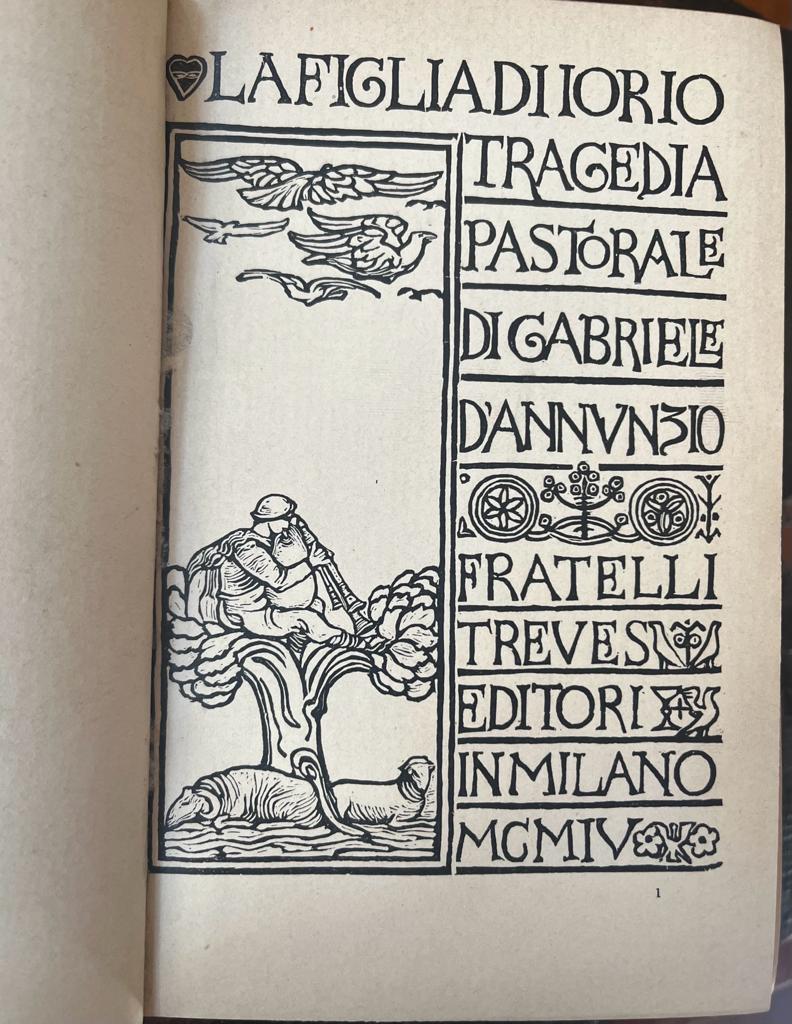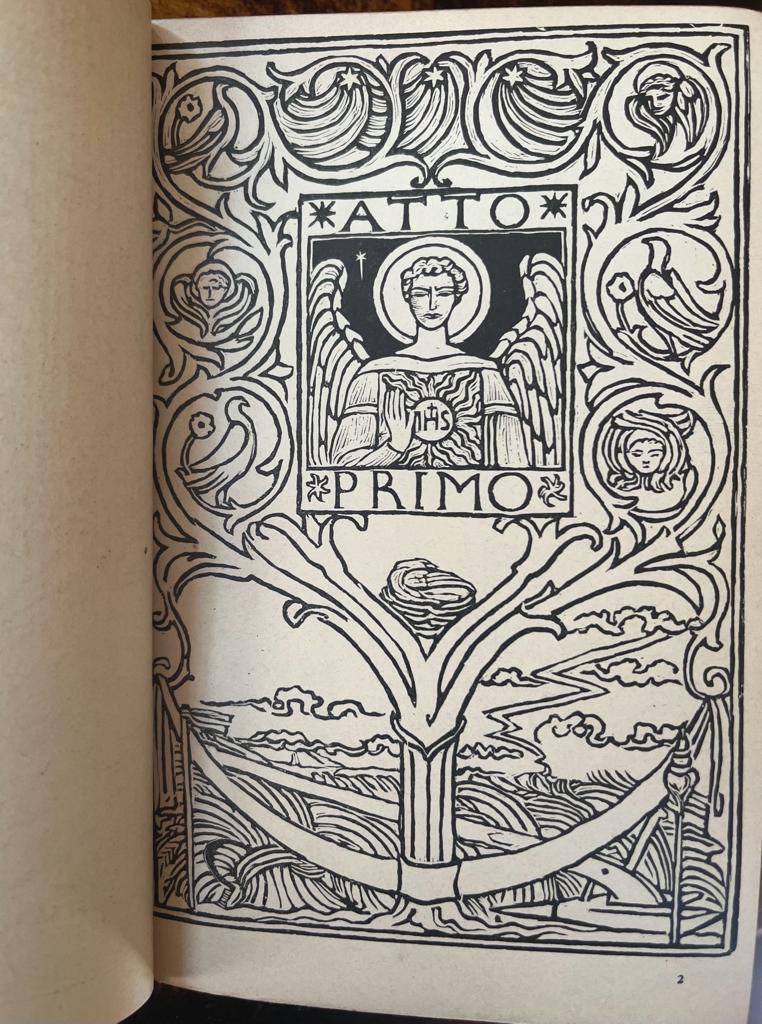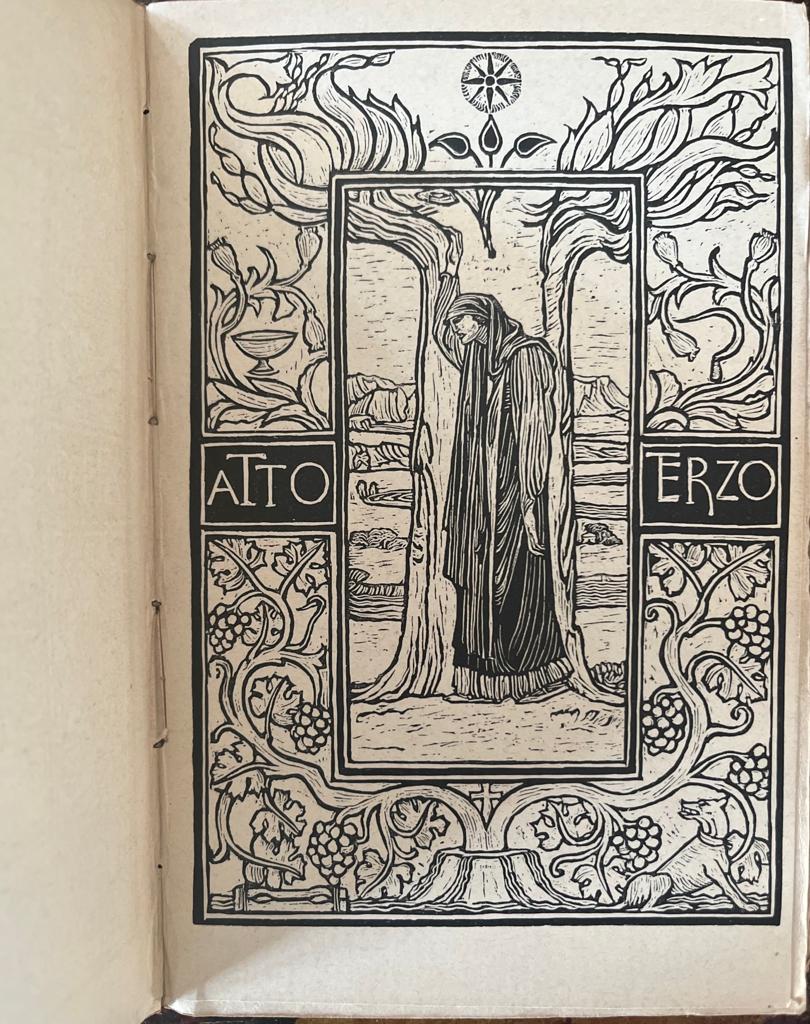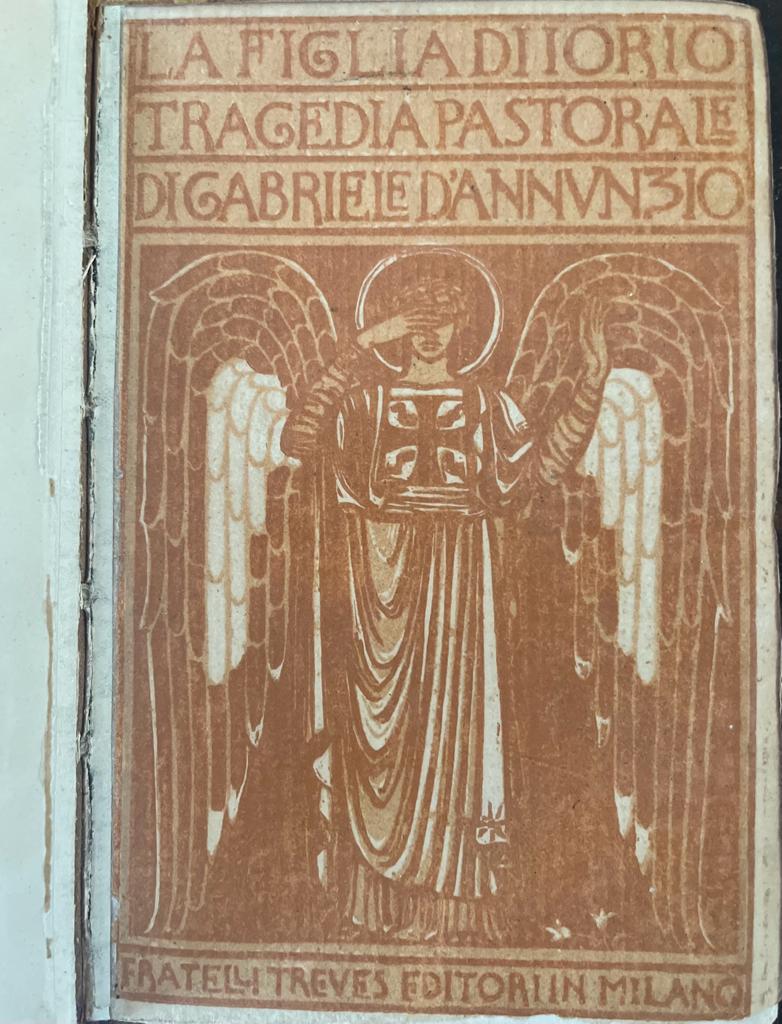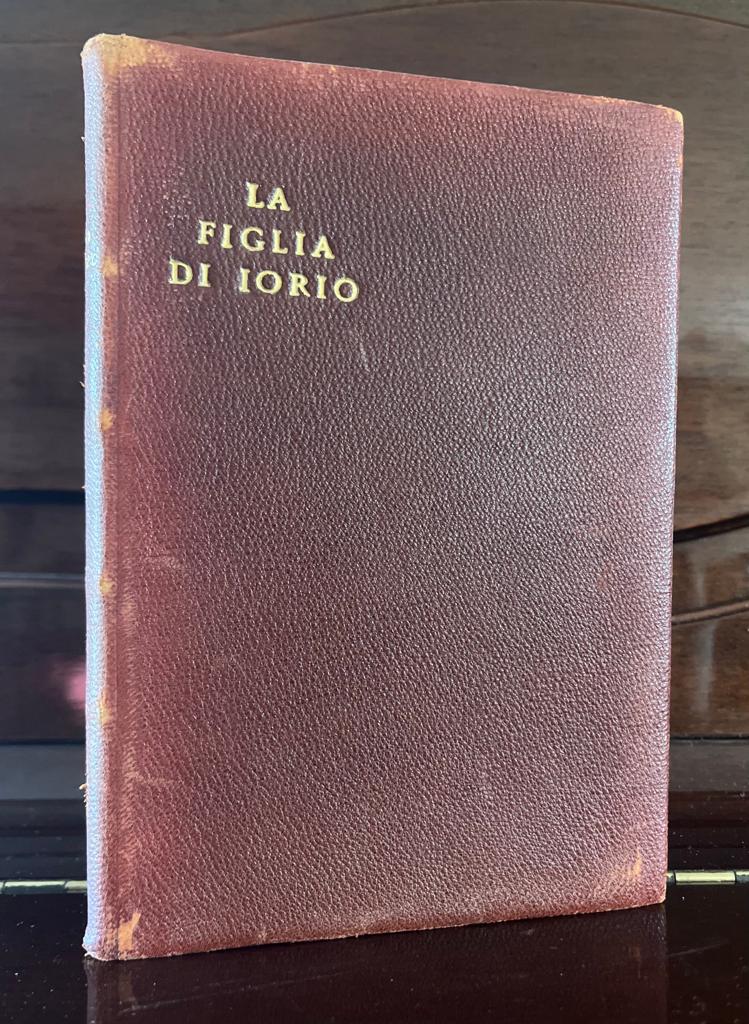1904, Gabriele D’Announzio, La Figlia Di Iorio, First Edition, Adolfo de Karolis, Ex Libris Lady Fitzgerald Law
100.00€
General Gabriele D’Annunzio, Prince of Montenevoso OMS CMG MVM ( 1863 – 1938), was an Italian poet, playwright, orator, journalist, aristocrat, and Royal Italian Army officer during World War I. He occupied a prominent place in Italian literature from 1889 to 1910 and later political life from 1914 to 1924
The play La Figlia Di Iorio is written in verse and has elements of local dialect, proverbs and traditional rhymes from Abruzzo. It tells the tragic story of the love between a young female outcast and a shepherd who is being married off to a woman he does not love.
The play was written in 33 days in the summer of 1903, while D’Annunzio was working on Halcyon. It premiered in 1904 at theTeatro Lirico in Milan, starring Irma Grammatica in the leading role. It was well received and has remained one of D’Annunzio’s most performed plays
D’Announzio, who just the previous year had created some of his lyrical masterpieces such as Halcyon, distanced himself from Eleonora Duse and fell into a spiral of luxury and debt. After the success of La Figlia di Iorio, he faced a brief period of creative and artistic difficulty.
Description
Gabriele D’Announzio
La Figlia Di Iorio – The Daughter og Iorio
Published by Fratelli Treves Editori, Milano in 1904
Woodcuts by Adolfo de Karolis
First Edition
Ex Libris Lady Fitzgerald Law
Fine leather binding with preserved cover pages of the book
166 + 2
18cm x12cm (approx. 7,1 inch. x 4,8 inch.)
Adolfo de Carolis (1874–1928) was an Italian painter, xylographer, illustrator and photographer. He is generally associated with Art Nouveau (known as “Stile Liberty” in Italy), although many of his works could also be classified as Symbolism.
Sir Edward Fitzgerald Law (1846 – 1908) was a British diplomat and expert in state finance.
Law first went to Greece in 1892, and presided over the finances of Greece, restructuring the Greek debt and the nation’s economy, to the lasting advantage of Greece.
The Greek treasury had been depleted by over-spending and systemic corruption often caused by political campaigns in which parties promised massive spending programmes. The reformist Prime Minister, Charilaos Trikoupis, 1832-1896), stood before parliament and made the most famous statement of his career: ‘Regretfully, we are bankrupt’ («Δυστυχώς επτωχεύσαμεν»).
In 1893, Greek taxation was moderate in comparison to many other European countries. Law suggested increasing it, along with introducing reforms in the imposition and collection of new taxes. He regarded a new loan for Greece as a necessity, but the operation was to comprise funding the floating debt, and reducing the circulation of Greek banknotes during the three following years.
Law’s own views were summarised in his covering letter with his report:
If it be held that the difficulty is solely due to unsuccessful financial administration, a further question arises are the resources of the country sufficient, with reasonable care, to meet existing difficulties, or is the financial position so compromised as to be beyond remedy without prejudice to the honour of the Greek nation and the legitimate rights of its creditors?
Law’s report was leaked in the City in London before it was published, causing considerable speculation in Greek stocks. This ‘regrettable incident’ was attacked in the London daily newspapers, and Law was subjected to some unmerited censure.
However, his report helped restore public confidence in Greece, the servicing of foreign loans was suspended, and all non-essential spending was cut. Some of the results Law might have been expected were frustrated by the untimely fall of Trikoupis and his reformist government.
At a party at the German Embassy there he met Catherine (Kaity), only daughter of Nicholas Hatsopoulos. She was the descendant of an old Byzantine family that was long-settled in Athens. Edward and Kaity were married on 18 October 1893.
In 1894, Kaity was the model for an image of Athens on a medallion struck for Queen Victoria’s daughter, the Empress Frederika (1840-1901), wife of Kaiser Frederick III.
Law stayed on in Greece, and in 1897 he was appointed the British member or commissioner on the International Financial Committee at Athens. He remained the British Minister Resident in Athens from 1898 to 1900.
Source: https://www.patrickcomerford.com/2017/11/sir-edward-law-1846-1908-irish.html
Additional information
| Languages | Italian |
|---|
You may also like…
-

1903, De l’Importance du Public, Andre Gide, 1/100 Copies, Nobel Laureate, Including his Business Card from Algier!
250.00€ Read more -

1909, Filippo Tommaso Marinetti, Poupées électriques, Futurism, SIGNED, First Edition
370.00€ Read more -

Angelos Sikelianos, Mater Dei, Mitir Theou, Robert Levesque, 1944, Mater Dei, Signed, 1/500 Copies, Albert Bequin
385.00€ Add to cart -
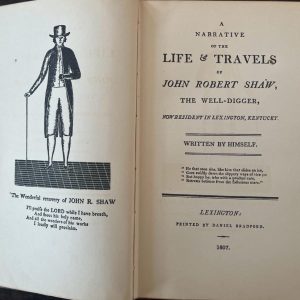
1930, 300 Copies! A Narrative Of The Life & Travels Of John Robert Shaw, The Well-Digger, Now Resident in Lexington, Kentucky, John Robert Shaw
50.00€ Add to cart

